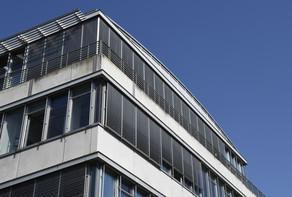M.Sc. Modul 3: Vertiefungsschwerpunkt 2: Strategische Stadt und Regionalentwicklung
Motor city-regions: Industrial restructuring and socio-spatial change
Betreuung: Dr. Letizia Imbres (ROP)
The motor vehicle industry is one of the world largest and a major source of national gross domestic product (GDP) for several countries. It includes corporations that design, develop, and manufacture cars and trucks; these carmakers, such as Volkswagen, General Motors, and Toyota, are among the most-familiar corporate brands. Its importance transcends even its central role in the global economy as the automotive industry was responsible for many fundamental production and sales innovations of the twentieth century (Rubenstein, 2014).
Zeit und Ort
Tag | von | bis | Rhythmus | Ort | Beginn | Ende |
Di | 10:15 | 11:45 | wöchentlich | GB III / 214 | 18.04.2017 | 25.07.2017 |
The rapid growth that occurred since its establishment, nonetheless, has been accompanied by a substantial evolution of the industry itself, leading to important changes in its production system, organizational structure, and geographical footprint. In particular, in the last two decades, the motor vehicle industry has experienced dramatic restructuring under the pressure of globalization and rising competition between traditional and emerging car-producing regions of the world.
In turn, restructuring in the world motor vehicle industry has had significant impacts on the social and spatial structure of those manufacturing regions whose economy presents a high-degree of specialization towards car-production. These includes quintessential examples of ‘motor city-regions’ such as Detroit/USA, Wolfsburg/Germany, Torino/Italy, Coventry/UK and Nagoya/Japan which emerged and consolidated over the last century as cores of their respective national automotive systems, but also newer automotive clusters such as those located in Mexico, Eastern Europe, and East-Asia.
According to these premises, the seminar will be articulated into two parts aiming to address the following objectives:
- Gaining basic knowledge regarding the restructuring of the automotive industry in terms of processes and operations, organizational structure, and spatial distribution within different world regions (mainly North America, Europe, and East Asia). An investigation of the changing motor vehicle industry at the regional scale will be also carried out by referring to selected cases;
- Identifying and analyzing how patterns of spatial and social change common to most metropolitan areas worldwide (e.g. suburbanization, population growth and shrinkage, social polarization) have been fostered in car-producing regions by the boom-and-bust cycles of the automotive industry. An examination of the challenges posed to urban and regional planning by local industrial and socio-spatial restructuring will be also undertaken by referring to specific, individually chosen case studies.
The seminar will encompass lectures, projection of documentary films, and individual presentations by students on the assigned readings and case-study analysis.
Literatur
There is no pre-requisite reading that needs to be done, but participants may find the following books interesting and informative at a general level. Part of the readings for the seminar will be picked from this list. The complete reading list will be communicated during the introductory event at the beginning of the semester.
Bloomfield G.T. (1978), The world automotive industry, North Pomfret, Vermont: David & Charles Inc.
Hudson R. & Schamp E.W. (1995), Towards and new map of automobile manufacturing in Europe? New production concepts and spatial restructuring, Heidelberg: Springer
Law C.M. (1991), Restructuring the global automobile industry. National and regional impacts, London & New York: Routledge
Rubenstein J.M. (2014), A profile of the automobile and motor vehicle industry: innovation, transformation, globalization, New York: Business Expert Press
Womack J.P., Jones D.T & Roos D. (1990), The machine that changed the world, New York: Rawson Associates
Bemerkung
- Die Veranstaltung ist teilnahmebeschränkt. Das Anmeldeverfahren für alle Veranstaltungen findet zu Semesterbeginn statt. Informationen und Fristen werden auf der Homepage der Fakultät, per E-Mail und in der Informations- und Einführungsveranstaltung vor Vorlesungsbeginn bekanntgegeben.
- The language of the seminar is English.
Leistungsnachweis
Participating students will be asked to submit a paper (max 10 pages) at the end of the seminar. Requirement for passing the course is also a proof of successful active participation, which includes short individual presentations on the assigned readings and case-study analysis.





